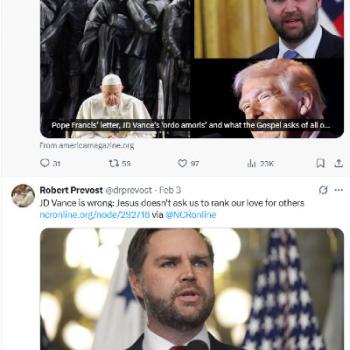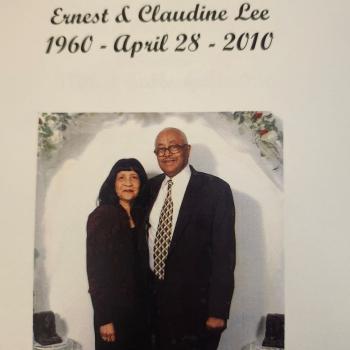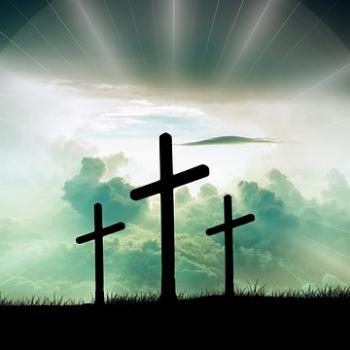At the meal that would one day be dubbed "The Last Supper" there is one moment of dialogue between Jesus and Peter that rivets me just because it is so familiar. In a mere sentence, it captures both the small and great struggles we all have concerning patience, waiting, and trusting God with every detail of our lives. And the comment passes by so innocuously, that we may miss the weight of its message amidst the drama of the rest of the text.
In a surprising moment, Jesus prepares to wash the disciples' feet, the task of hospitality performed by a servant. Peter strongly objects to this lowly service from the Master's hand.
Jesus simply and directly answers Peter: "What I am doing, you do not understand now, but you will understand later" (Jn.13:7).
Peter should have known by now that Jesus is always full of surprises and paradoxes and words and ways that his followers never expect. As the Old Testament declares, God's ways are not our ways. (See Is. 55:8-9.) Still, embracing that reality in the Christian life is often a hard-won lesson.
Ever have an embattled moment when you feel like going toe-to-toe with God and challenging his motives?
Remember those words from Jesus: "What I am doing, you do not understand now, but you will understand later."
If you're a parent, have you ever had to make a tough decision in correcting a child, or—heaven, help us!—a teen? Certainly, you've expressed similar counsel: "You may not understand why I'm doing this now, but later on, you will."
We've all been there. We've all had moments when we are standing and shaking our heads. What does this mean? What is God doing?
"What I am doing, you do not understand now, but you will understand later."
It's the "later" part that we sometimes don't trust. We want the answers now. Or yesterday. Sometimes the "later" is later today, tomorrow, next week, next year, and sometimes, it will be revealed in eternity. But the promise is there; you will understand.
I learn from the exchanges between Peter and the Lord Jesus (not just in this text but elsewhere). Peter is often obtuse, off base, missing the point, or slightly clueless. And, Jesus, who loves Peter despite his flaws and knowing he has many good and magnanimous virtues as well, respectfully reassures Peter: "What I am doing, you do not understand now, but you will understand later." You will understand.
Whenever we listen to the words of Jesus, there is always a personal message and a corporate one. While these words may be valuable for our meditation on our personal lives, they also point to a bigger picture. Our lives are set in the wider context of the salvation history.
"What I am doing, you do not understand now, but you will understand later."
Immediately, these words of Jesus set the stage for everything that follows them: The Last Supper, the Passion, the Death, the Resurrection. We do well to pay attention.
Modern believers have the benefit of hindsight plus two thousand years of the Church's meditation on scripture. But looking at that exchange at the supper, only Jesus had the vision and knowledge of what was still to come, later. Just ahead was the Lord's passion and death that the institution of the Eucharist was to represent—gifts of bread and wine transformed into his body and blood.
Later, Peter and the others would know the fullness of this truth, but that night was the first Eucharist! What seems so accessible and familiar to Catholics today was being inaugurated. It is hard to imagine this event in history knowing what we know now. I don't think anyone except Jesus knew it was the "last supper" until well after that last supper.
Jesus knew the big picture, and knew it was his last meal, and he told his disciples as much. He began bidding them farewell—"I will be with you only a little while longer" (Jn. 13:33).
Can you imagine what was churning in the hearts of his companions? What does this mean? What is he doing?
Again, it is Peter who pipes up, "Master, where are you going?" Jesus answered, "Where I am going, you cannot follow me now, though you will follow later" (Jn. 13:36).
"Later." Ugh. Again the implication: Not now, you will understand later.
Jesus then prayed an amazing prayer during what Bible scholars call "the final discourse." It was a prayer for the moment, and for "later"—for what was to come—so the apostles would understand. It was a prayer for each one, and a prayer for the many; for each individual's situation, and for the whole world. There was even a prayer referencing we who came later: "I pray not only for them, but also for those who will believe in me through their word . . ."
As I read John's gospel and Jesus' words, I imagine him praying intensely on behalf of his friends, with great love, mercy, and hope. Perhaps he lingered over each idea—so they would remember (Jn.14-17).





